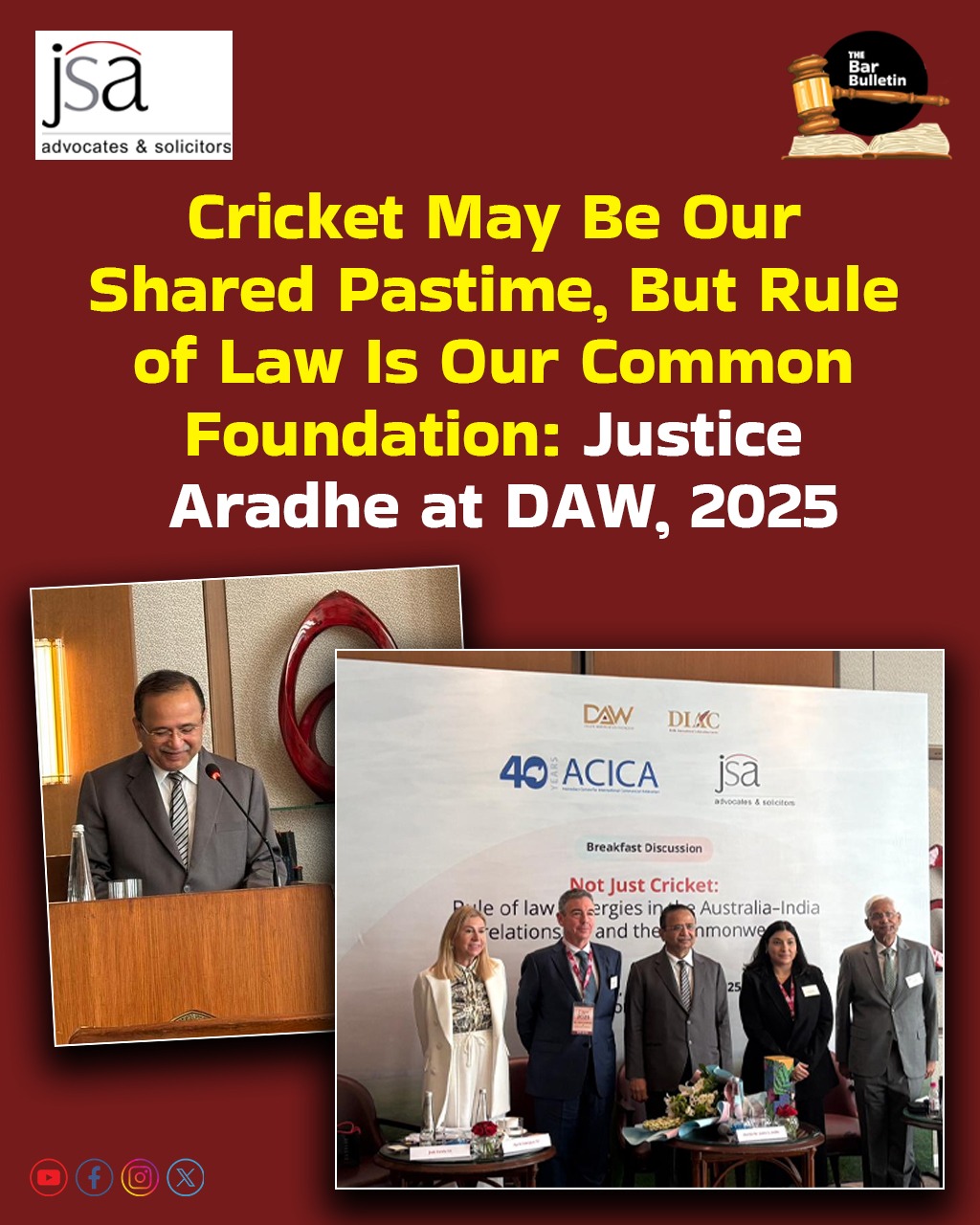The Delhi Arbitration Weekend (DAW) 2025, in collaboration with the Australian Centre for International Commercial Arbitration (ACICA) and JSA, hosted a thought-provoking breakfast session titled “Not Just Cricket: Rule of law synergies in the Australia–India relationship and the Commonwealth” at The Oberoi, New Delhi.
Chaired by Hon’ble Mr. Justice A. Aradhe, Judge, Supreme Court of India, the session brought together leading voices in the field of arbitration, including Ms. Jodi Steele SC (Barrister, Australia), Mr. Mark Dempsey SC (ACICA Professional Advisory Council Member and Independent Arbitrator), Ms. Richa Kaushal (Counsel, Clifford Chance, Australia), and Mr. Amar Gupta (Joint Managing Partner, JSA Advocates & Solicitors).
Justice Aradhe, in his opening remarks, highlighted how amendments to India’s Arbitration and Conciliation Act have reduced judicial interference, improved timelines, and promoted institutional arbitration. Drawing parallels with Australia’s arbitration journey, he noted the 2013 TCL Air Conditioner v. Castle Electronics decision as reaffirming Australia’s pro-arbitration stance. He further emphasized that arbitration is the natural choice for businesses across the Indo-Pacific, with India and Australia well-positioned to jointly shape the future of dispute resolution in the region.
Mr. Amar Gupta underscored the proactive role of Indian courts in bridging statutory gaps and aligning arbitration practices with international standards. He also highlighted India’s varied enforcement experience, noting the sophistication of jurisdictions like Delhi, while stressing the importance of treaty-specific provisions in newer bilateral investment treaties, including with Australia.
Mr. Mark Dempsey SC pointed to the shared legal heritage of India and Australia, both federal democracies committed to transparency, impartiality, and access to justice. He outlined the robust institutional framework in Australia, including ACICA, QICA, and the Resolution Institute, and emphasized how international arbitration fosters trade confidence by ensuring neutrality, enforceability, and confidentiality.
Ms. Richa Kaushal highlighted the practical benefits of arbitration efficiency, enforceability, and confidentiality which are particularly critical in complex commercial partnerships. She noted that both India and Australia have adopted timelines for arbitration, ensuring investor confidence in fast and fair dispute resolution.
The session concluded with a consensus that arbitration plays a pivotal role in deepening commercial ties between India and Australia, strengthening investor confidence, and reinforcing rule of law commitments within the Commonwealth and the Indo-Pacific.
As Justice Aradhe aptly remarked, “Cricket may be our shared pastime, but the rule of law is our common shared foundation.”

